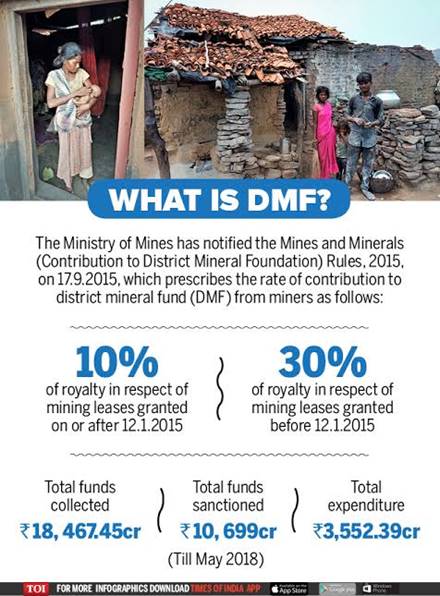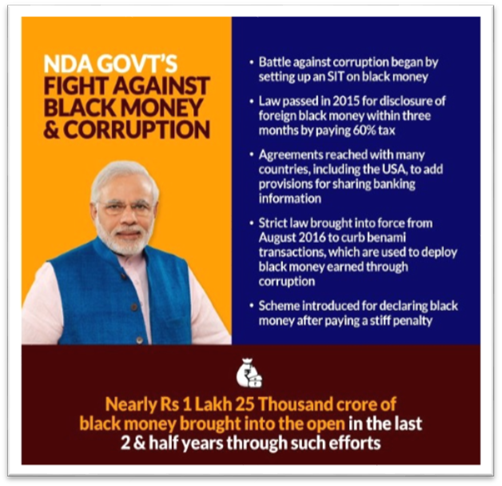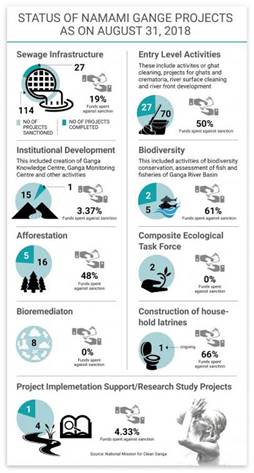



Odisha Government should retain big mines: State Congress chief to CM
POLITY
Odisha Government should retain big mines: State Congress chief to CM
As the Odisha government begins the process to auction Iron and Manganese mines, state Congress president appealed to Chief Minister to retain the biggest mines with the state government.
Mines in Orissa:
- Iron ore is found in the districts of Mayurbhanj, Sundargarh, Keonjhar and Jajpur.
- Chromite is present in Jajpur, Dhenkanal and Keonjhar districts.
- Manganese deposits are available in Sundargarh, Keonjhar, Rayagada and Balangir.
Regulation of Mining in India:
Parliament has passed the Mines and Minerals (Development and Regulation) (Amendment) Bill, 2015 for regulation.
Major features
- All mineral concessions will be granted only through auction {Sections 10 B &11}.
- Direct auction for mining leases for bulk minerals; auction of prospecting licences-cum-mining leases for deep-seated minerals {Sections 10 B & 11}.
- Uniform lease period of 50 years; no renewals; auction at the end of lease period; will solve problems arising out of SC judgments on second and subsequent renewals {Section 8 A}.
- Transition period of minimum 15 years for captive mines and 5 years for other mines; no sudden stoppage as a result of the Amendment {Section 8 A (5) and (6)}.
- All pending applications at State level (over 60 thousand) will abate except in a few cases where action is in progress/vested right exists {Section 10A}.
- Central Government empowered to prescribe deadlines for various processes and to issue binding directions to States {Section 20 A}.
- Central Government to frame separate rules for atomic minerals {Section 11 (B)}.
- The prior approval of the Central Government will not be required for grant of mineral concession except for Atomic Minerals {Amendment to Section 5(1)}.
- Enabling powers for reservation for the public sector to continue {Section 17 A}.
- Higher penalties and jail terms for offences; special courts may be constituted, if necessary {Amendment to Section 21(1) & (2)}. .
- District Mineral Foundation to take care of people and areas affected by mining {Section 9 (B)}.
- National Mineral Exploration Trust to be set up for impetus to exploration {Section 9 (C)}.
- Easy transferability of concessions obtained through auctions so as to attract private investment and FDI.
- Powers to Central Government to intervene even where State Governments do not pass orders within prescribed time lines; this will eliminate delay .

Reference : https://indianexpress.com/article/india/odisha-govt-should-retain-big-mines-state-congress-chief-to-cm/
ECONOMY
Swiss FTA submits first set of data on Indian account holders
Over a year after signing the pact for automatic exchange of information, India has received the first set of data about the account details of its nationals in Swiss banks.
Switzerland’s Federal Tax Administration (FTA), in a statement Monday, said it has exchanged information on financial accounts with 75 countries, out of which 63 reciprocated, under the global framework of the automatic exchange of information (AEOI).
Automatic Exchange of Information Framework:
- India is among the 75 countries with whom the Swiss Federal Tax Administration has exchanged information on financial accounts.
- The information exchange has taken place under the framework of global standards on AEOI (Automatic Exchange of Information), which provides for exchange of information on active financial accounts and those accounts that were closed during calendar year 2018.

- The use and disclosure of the information received is though governed by the confidentiality provisions of the India-Switzerland tax treaty
- The AEOI relates to accounts that are officially in the name of Indians, and they might include those used for business and other genuine purposes.
- The OECD Global Forum on Transparency and Exchange of Information for Tax Purposes reviews the implementation of the AEOI.
- Identification, account and financial information is exchanged, including name, address, state of residence and tax identification number, as well information concerning the reporting financial institution, account balance and capital income.
- The exchanged information allows the cantonal tax authorities to verify whether taxpayers have correctly declared their financial accounts abroad in their tax returns.
SECURITY
WhatsApp, other OTT service providers on TRAI radar for ‘lawful’ interception
The telecom regulator is working on a set of recommendations for the Department of Telecommunications (DoT) to regulate the so-called over-the-top (OTT) service providers.
Regulation of OTT:
- Currently, OTTs aren’t subject to lawful interception.
- This brings the question of regulatory imbalance between telecom players, which have to adhere to lawful requests of enforcement agencies for interceptions, and OTTs which don’t give, saying the communication is end-to-end encrypted.
- Globally US regulators are arguing that that companies should not “deliberately design their systems to preclude any form of access to content even for preventing or investigating the most serious crimes”.
WhatsApp Arguments and Policy :
- WhatsAppwill search for and disclose information that is specified with particularity in an appropriate form of legal process and which we are reasonably able to locate and retrieve.
- WhatsAppdoes not retain data for law enforcement purposes unless we receive a valid preservation request before a user has deleted that content from our service.
- WhatsApp does not store messages once they are delivered.
- “Undelivered messages are deleted from our servers after 30 days.
- It also offer end-to-end encryption for our services, which is always activated. End-to-end encryption means that messages are encrypted to protect against WhatsApp and third parties from reading them.
Process of Regulation:
- Lawful interception is allowed under Telegraph act for which registration of OTT players are required.
- WhatsApp arguments of not having access to user data has put regulators in a fix.
- The Indian Telegraph Act, 1885 states that on occurrence of any public emergency, or in the interest of the public safety, the Central government or a state government can take temporary possession – for so long as the public emergency exists or the interest of the public safety requires the taking of such action
- Government has made it clear that in case of illegal activity like mob lynching, communalism, rumour mongering, this OTT are only responsible and will have to give answers for their working. They must incorporate technological solutions to counter these ills.
ENVIRONMENT
Jal Shakti Minister Shri Gajendra Singh Shekhawat launches Ganga Aamantran – a unique initiative to connect with Ganga’s Stakeholders
- The ‘Ganga AamantranAbhiyan’ is a pioneering and historic exploratory open-water rafting and kayaking expedition on the Ganga River to be held between 10th October 2019 to 11 November 2019.
- Starting at Devprayag and culminating at Ganga Sagar, the expedition will cover the entire stretch of over 2500 km of the Ganga River.
- The expedition will encompass the five Ganga basin states including Uttarakhand, Uttar Pradesh, Jharkhand, Bihar and West Bengal
- The team, during the expedition will take up public awareness campaign on the locations at which they will stop.
- They will organise mass cleaning drives, interact with students of the village/city and will further the message of river conservation.
- the team from CSIR–Indian Institute of Toxicology Research will collect water samples from across diverse ranges of the river for the purpose of water testing.

- while members of the Wildlife Institute of India will undertake flora and fauna census for the year 2019.
Source : The Pib
India to shift to BS VI vehicular emission norms by April next year: Union Environment Minister
Government steps to tackle pollution :
- To control stubble burning, the government has given more than 20 thousand machines to farmers in Punjab and Haryana at a cost of about Rs.1150 crores.
- Launch of Air Quality index led to recognition of the problem of pollution.
- Out of 273 days till 30th September in 2019, number of ‘Good’, ‘Satisfactory’ and ‘Moderate’ days were 165 as against 104 in 2016.
- The Country will shift to BS VI vehicular emission norms from BS IV by April 2020. BS VI petrol/diesel is already available in Delhi/NCR.
- The Minster highlighted that the creation of Eastern and Western Peripheral Expressways, completed at cost of about ₹17000 Cr, has now led to 40000 goods vehicles, which are not destined for Delhi, to be diverted away from national capital, leading to a great positive impact on pollution.
- The closure of Badarpur Thermal Plant, banning of pet coke and conversion of 2789 Brick kilns in NCR to Zig-Zag technology has also led to reduction of pollution.
- Delhi alone gets 52MW energy from solid waste management and waste compost plant is operational.
Source : the pib

© 2026 iasgyan. All right reserved